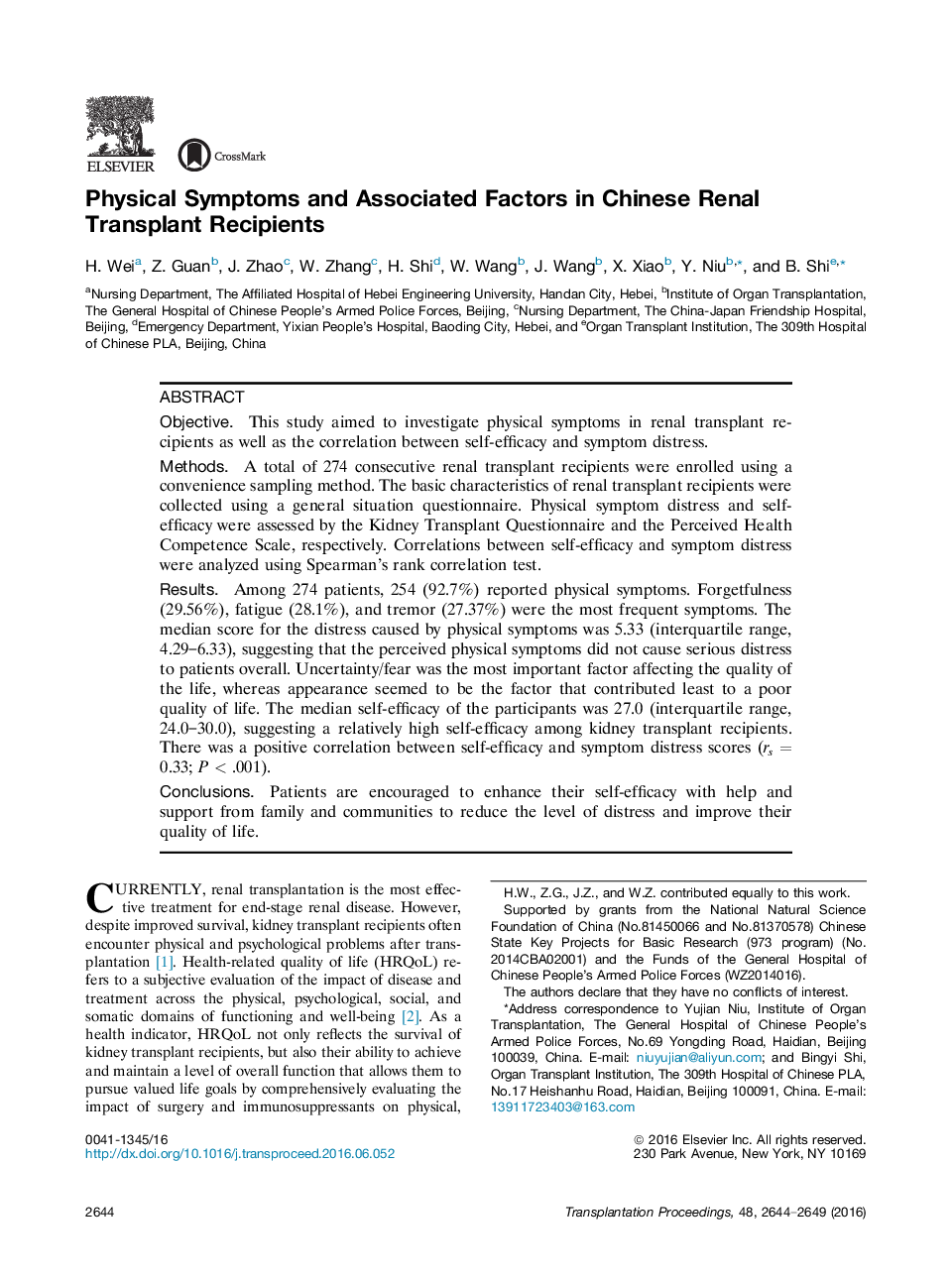| کد مقاله | کد نشریه | سال انتشار | مقاله انگلیسی | نسخه تمام متن |
|---|---|---|---|---|
| 5729200 | 1411677 | 2016 | 6 صفحه PDF | دانلود رایگان |
- Physical symptoms were commonly found in renal recipients.
- Forgetfulness, fatigue, and tremor were the most frequent physical symptoms.
- Self-efficacy enhancement contributes to reduce distress and improve life quality.
ObjectiveThis study aimed to investigate physical symptoms in renal transplant recipients as well as the correlation between self-efficacy and symptom distress.MethodsA total of 274 consecutive renal transplant recipients were enrolled using a convenience sampling method. The basic characteristics of renal transplant recipients were collected using a general situation questionnaire. Physical symptom distress and self-efficacy were assessed by the Kidney Transplant Questionnaire and the Perceived Health Competence Scale, respectively. Correlations between self-efficacy and symptom distress were analyzed using Spearman's rank correlation test.ResultsAmong 274 patients, 254 (92.7%) reported physical symptoms. Forgetfulness (29.56%), fatigue (28.1%), and tremor (27.37%) were the most frequent symptoms. The median score for the distress caused by physical symptoms was 5.33 (interquartile range, 4.29-6.33), suggesting that the perceived physical symptoms did not cause serious distress to patients overall. Uncertainty/fear was the most important factor affecting the quality of the life, whereas appearance seemed to be the factor that contributed least to a poor quality of life. The median self-efficacy of the participants was 27.0 (interquartile range, 24.0-30.0), suggesting a relatively high self-efficacy among kidney transplant recipients. There was a positive correlation between self-efficacy and symptom distress scores (rs = 0.33; P < .001).ConclusionsPatients are encouraged to enhance their self-efficacy with help and support from family and communities to reduce the level of distress and improve their quality of life.
Journal: Transplantation Proceedings - Volume 48, Issue 8, October 2016, Pages 2644-2649
